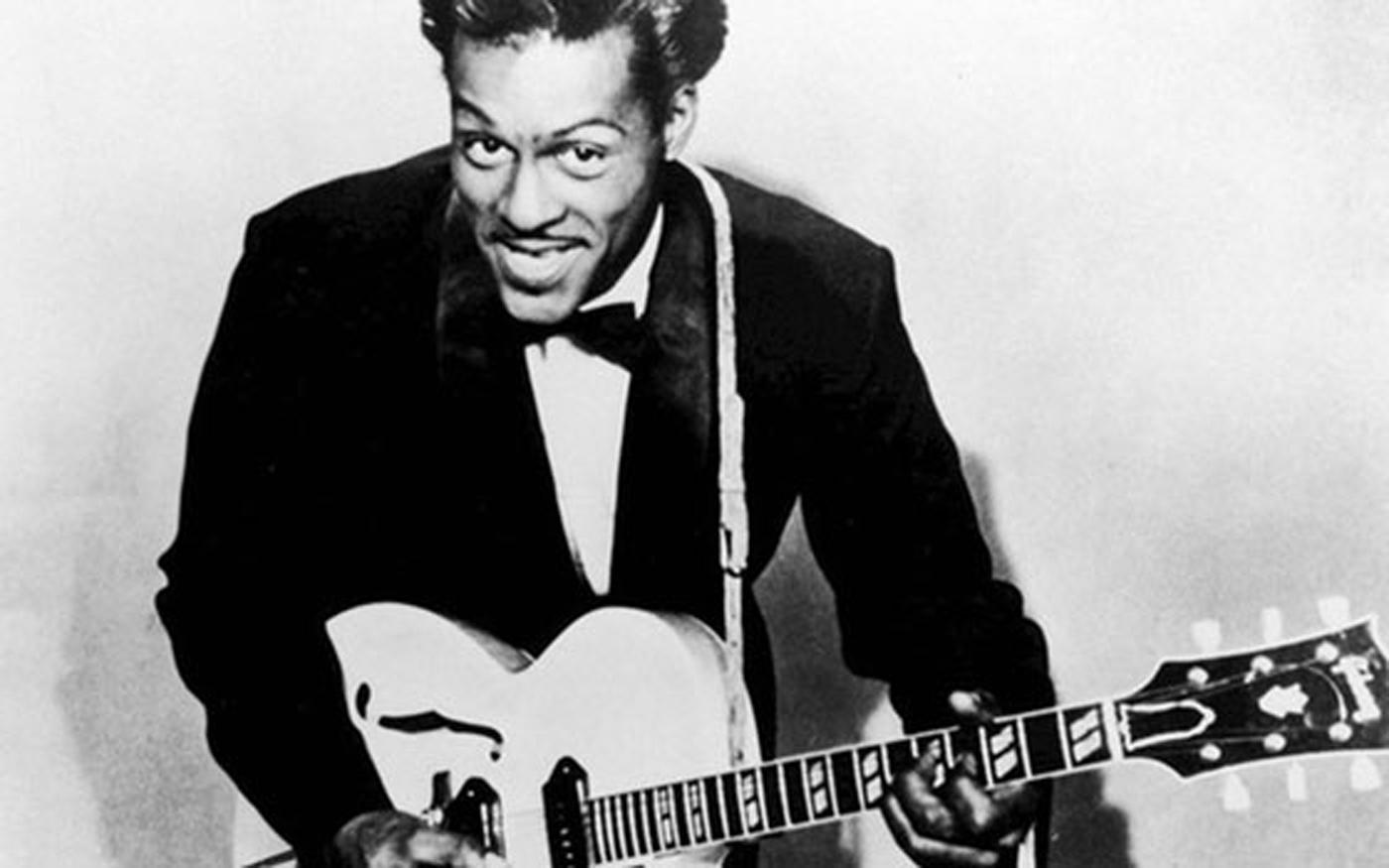The music on the Voyager Golden Records will outlive our species.

Long after the last SoundCloud downloads have succumbed to the second law of thermodynamics, and the final music CD has been digested by polycarbonate-eating bacteria, Chuck Berry will still be rocking.
Or rather, his music will. "Johnny B. Goode" is graven onto the Golden Records now being carried ever deeper into the cosmos by the 1970s-era Voyager spacecraft. They only await an alien needle drop.
You might wonder why NASA chose to send old-timey analog platters into space. The answer can be learned by going back to 1971, when two employees of the agency, Eric Burgess and Richard Hoagland, noted that the upcoming Pioneer mission to scout out Jupiter and Saturn would send human-made hardware out of the solar system for the first time.
The two argued that these robotic emissaries should carry a message. So each was outfitted with a plaque about the size of a license plate, emblazoned with an image of a couple in nature's garb, and additional graphics with a few facts about Earth and its inhabitants.
This simple pictorial tweet became nearly as famous as the stunning planetary images that were eventually returned by the Pioneer missions. Consequently, when rockets for the Voyager mission were rolled onto Canaveral's concrete aprons in 1977, they too bore messages — this time in the form of analog records. A graphic on the spacecraft showed how to play these disks, lest any aliens were flummoxed by our Paleolithic recording technology.
Astronomer Frank Drake, a participant in this project, says that grooved records were chosen because of the hostile environment in space. Once beyond Earth, cosmic rays will quickly erase any recording on magnetic tape — the only alternative to disks at the time.
What about the message itself? Drake notes that the teams who selected the Golden Records' content — which included imagery, spoken word, text, sounds from nature, and music — were generally amiable and cooperative. All that is, except those tasked with deciding the music. They made a maddening fuss. Perhaps the musically trained are inherently combative, but it's also possible that our musical tastes are particularly close-held, and as hard to shake as a phone pole.
In any event, 26 short selections made the cut, including "Johnny B. Goode." It's hard to know which genre the aliens will prefer (assuming they even know what music is), but one hopes they cotton to Beethoven. Unlike the others, he appears on the records twice.
It might strike the musically literate that the Beatles, although wildly popular at the time, are not on this interstellar playlist. According to Drake, there were legal difficulties in sending their melodies into the void. As it is, NASA got a second chance to message the Fab Four in 2008, when they used a radio antenna to broadcast "Across the Universe" towards the North Star.
That Lennon/McCartney ditty will spend more than 400 years en route, even at the speed of light. Mind you, that still beats the Voyager delivery times. It will be 400 centuries before Voyager 1 approaches within 10 trillion miles of a nearby dwarf star. If you consider that an "approach."
But such daunting delays aside, will anyone ever play these spacefaring platters? Frank Drake says that the Golden Record task force, headed up by Carl Sagan, tried to be realistic. They didn't expect anyone was ever going to find their disks. Rather, their idea was to give humans some practice in how we might possibly communicate with other intelligence, should we discover it in the future.
Look at it this way: The Voyagers are about the size of a Volkswagen Beetle, and finding something so diminutive in space, even at less than a light-year's distance, would be like Hawaiians discovering something the size of a pinprick floating in the Pacific — and doing so without being told it's out there.
Clearly, this is no way for Berry's music to reach listeners. But there's another angle. In the nearly sixty years since he belted out this song, it's been played on FM radio and TV many times. Those transmissions are radiating into the cosmos, washing over worlds at the rate of about one new star system a day. Maybe someone on a distant planet has a really big antenna, and there's already a Chuck Berry fan club.
But even if that's not true — even if Voyager's Golden Records are doomed to a slow and silent annihilation by high-energy particles and interstellar dust — Berry's creative talents will still outlast his species. His name and his genius are on humanity's longest-lasting tombstone.
Originally published here.





